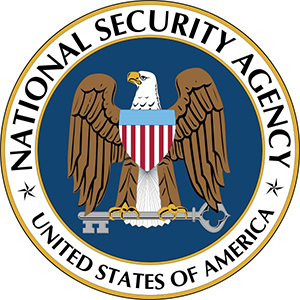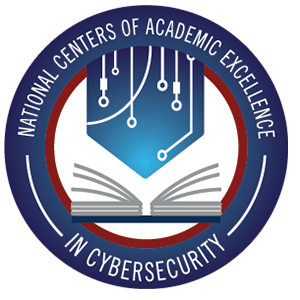Request Information
Ready to find out what MSU Denver can do for you? We’ve got you covered.
The Master of Science in Cybersecurity is accredited through the Higher Learning Commission.
MSU Denver’s Cybersecurity Center has been designated by the National Security Agency as an NSA Center of Academic Excellence.


The United States is facing an increasing vulnerability of a wide range of risk stemming from cyber-attacks, according to the Department of Homeland Security (DHS). Such attacks have caused the loss and corruption of valuable digital information in cyberspace, may it be in transit or stored. DHS further points out that “of growing concern is the cyber threat to critical infrastructure, which is increasingly subject to sophisticated cyber intrusions that pose new risks.
The ISACA, a non-profit information security advocacy group, states that the global cybersecurity skills gap has now grown beyond 4 million cybersecurity unfilled positions, which represents a 26% increase from 2018.
In a recent survey on the State of Cybersecurity, nearly two-thirds of respondents said their organization’s cybersecurity teams are understaffed; nearly one-third said it’s taking companies six months or longer to fill unfilled positions. Additionally, 53% say it is likely their enterprise will experience a cyberattack in the next 12 months.
Cyber operations involve a complex interplay between technology and human behavior. To meet the sociotechnical needs from industry, MSU Denver has taken a unique approach by combining the Departments of Criminal Justice & Criminology, Computer Information Systems, and Mathematical and Computer Sciences to jointly create a multidisciplinary Master of Science in Cybersecurity degree program. The graduate program combines advanced computer/information system knowledge of combating cybercrime, analytical skills to analyze and manage cyber threats and security, the understanding of human factor in cyber operations, as well as the adaptation of laws to create policies to investigate, prosecute, and to punish cyber criminals.
The National Initiative for Cybersecurity Education (NICE) developed the National Cybersecurity Workplace Framework, and the U.S. Department of Labor (DOL) developed Industry Competency Model. The CYBM competencies use the above framework and model as guides.
The M.S. in Cybersecurity graduates will be able to:
Nationwide, the demand for positions in cybersecurity continues to increase and is expected to remain high as the need for cybersecurity professionals has grown three times as fast as traditional IT jobs. Many of our graduates have a background in criminal justice and computer science. In addition, veterans or those who work in law enforcement may be particularly well suited for careers in cybersecurity as their employment backgrounds and security clearances are very attractive for employers.
Depending on work experience graduates can land positions as:
Senate Bill 86 plans to pump $300,000 annually into educating the cybersecurity professionals of tomorrow at MSU Denver.
Contact the Cybersecurity Center
Cybersecurity Program Manager
Email or call with any questions regarding the Cybersecurity Program!